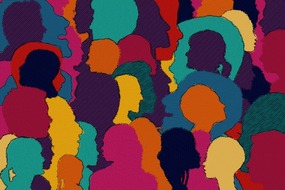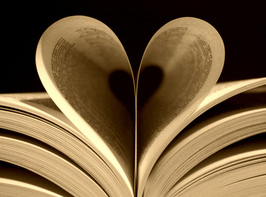 by Ariana Tucker Go onto any major book-selling website and you’ll probably find a section dedicated to Black authors in the list of genres and subcategories. Amazon calls theirs “Amplify Black Voices” and lists it among other popular keywords like “Award Winners” and “Celebrity Picks.” Barnes and Noble calls theirs “Black Voices” and lists it among other browsing options such as “Large Print Books” and “Trend Shop.” Click on either link and you’ll see popular books written by Black authors, most of which are the same books we’ve been talking about for the last five years. Barnes and Noble is the worst offender of this. On their featured page of “Fiction: Black Voices,” only four were published between 2020 and 2021 (Colson Whitehead’s Harlem Shuffle is their featured book from 2021). The rest are classics by Nella Larsen, Zora Neale Hurston, and Ralph Ellison and books by authors like Chimamanda Ngozi Adichie and Sister Souljah, which were published in the 2000s and 2010s. Amazon at least offers a more up-to-date list of recently released books by month and recommendations from editors and Black icons like Billy Porter and Rick Ross. You can find almost any genre and any subject here, the only difference is that the authors are all BIPOC.
0 Comments
by Erin Theresa Welsh  Publishing your own book is difficult. Actually, no, that doesn’t quite sum it up. Publishing your own book is stressful, time-consuming, and insanely difficult to achieve. Even if you get published, it is very unlikely you’ll become the next J.K. Rowling or Stephen King. Most average authors don’t make more than a regular mid-level salaried office position, and that's almost never off book sales alone. If an author wants to get published, it takes a lot of hard work to achieve that finished, beautifully bound piece of work. Not only does an author need to write and complete a lengthy piece of work, but they then need to choose how to publish it.

by Alexis Zimmerman
There are countless books in Young Adult Literature where the main character must fall in love with the main love interest by the end of the book. These two characters fall in love in the most unrealistic of ways without even knowing each other that well and only having maybe a handful of conversations. Yet for some reason, young readers seem to devour those books. There are so many copies of this cliché and unrealistic type of book sold in the bookstores more often than not that it’s unbearable. But does the love in these books happen naturally? Can someone fall in love as quickly as these characters fell in love? How do these instances of insta-love affect the younger readers who gravitate towards these particular books? Are they getting the impression that love happens right away, like it does in the books they’re reading? by John Gross
Throughout time technology has changed how the writer crafts his novel. From pen and paper, to typewriters, to word processing—the tools of the trade are constantly evolving. In today’s world, the writer can craft a sentence and move it around to different places, supplementing paragraphs where he sees fit. This can be a powerful tool, that makes the revision process more fluid and dynamic. An author can be less committed to putting something on a page, where it can be easily reshaped, moved, and removed. While this technology has fundamentally changed how the novelist crafts his work, it hasn’t really changed how the reader consumes it. Sure, we are in a period of time that is showing the rise of e-readers and digital print, but ultimately the novel is being experienced in the same traditional way. |
Archives
April 2024
Categories
All
|
|
Glassworks is a publication of Rowan University's Master of Arts in Writing 260 Victoria Street • Glassboro, New Jersey 08028 glassworksmagazine@rowan.edu |
All Content on this Site (c) 2024 Glassworks
|


 RSS Feed
RSS Feed
